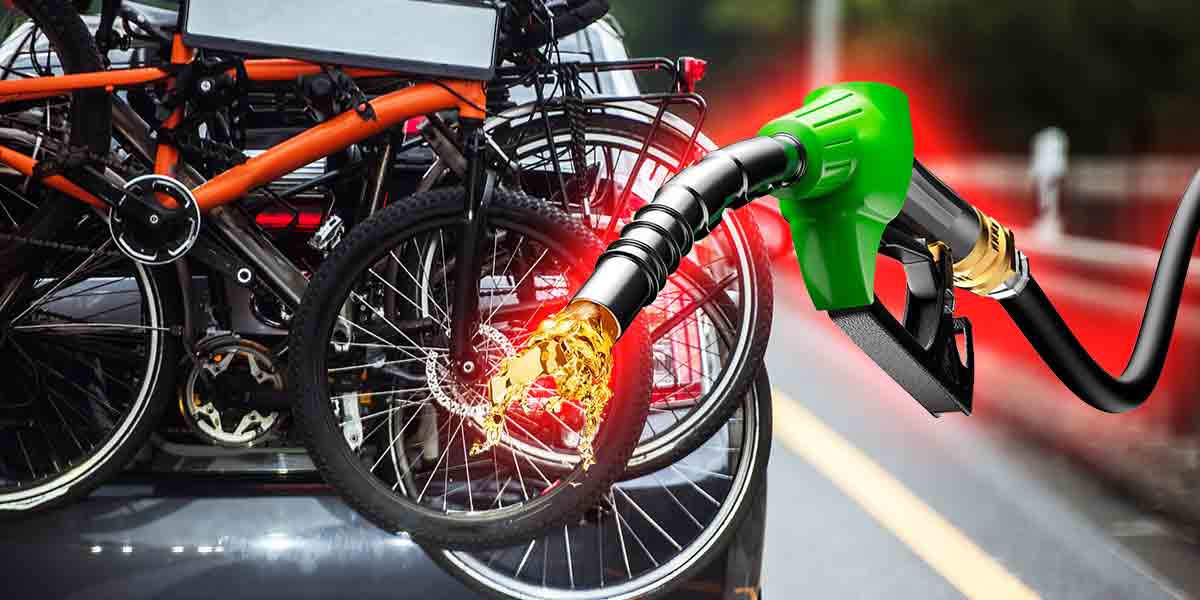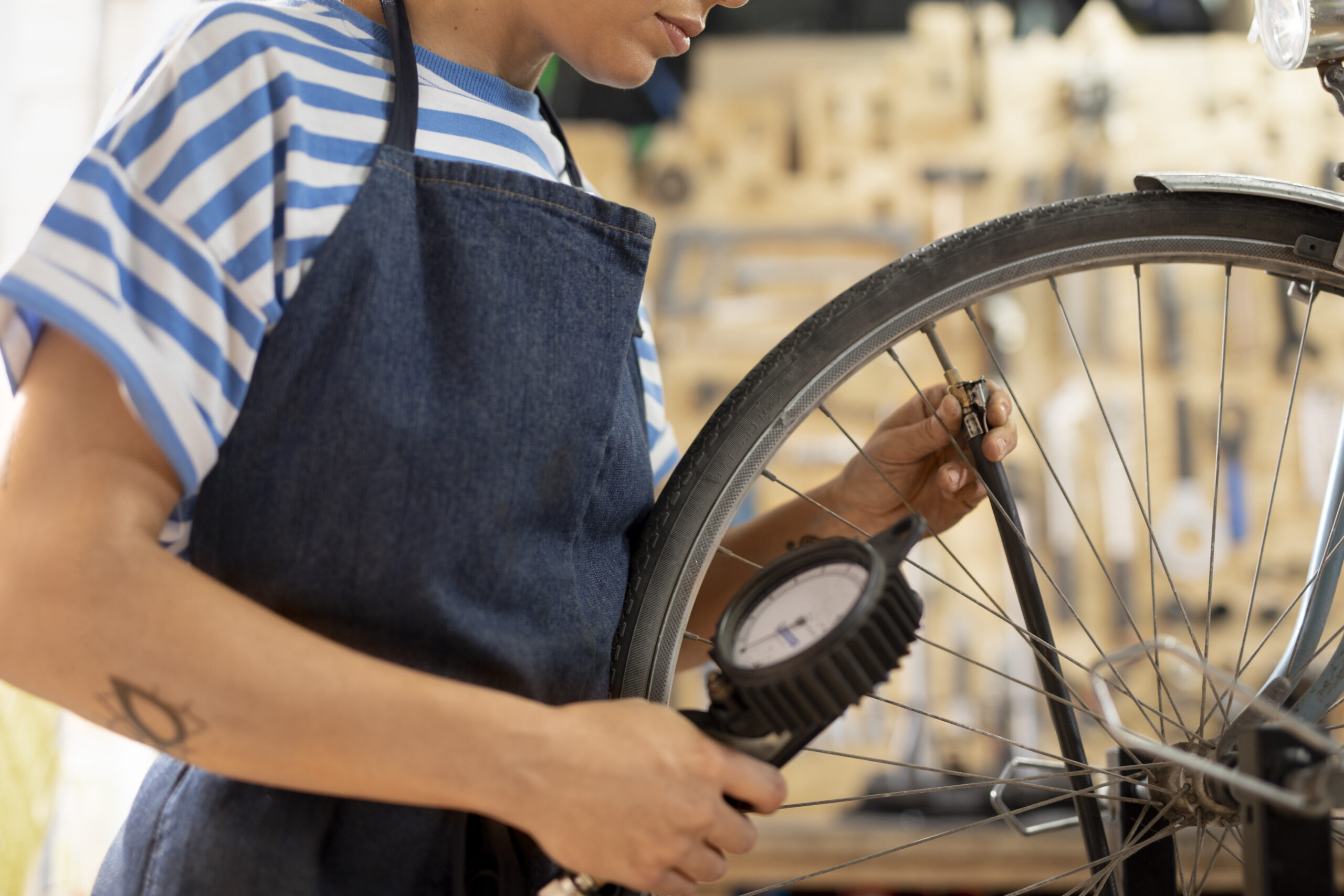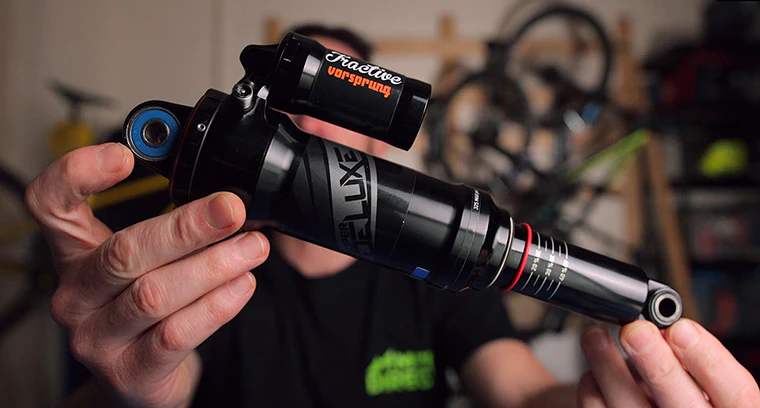As a bicycle lover, I’m always looking for ways to make my journeys more efficient and cost-effective. Recently, I’ve been asking myself: do hitch bike racks affect gas mileage? With gas prices always on the rise, I wanted to find out if I could save money by putting a hitch bike rack on my car. After doing some research, I discovered that the answer to my question is a bit more nuanced than I initially thought.
As an affiliate, we earn from qualifying purchases. We get commissions for purchases made through links in this website’s posts from Amazon and other third parties.
While the idea of saving money by using a hitch bike rack is tempting, it turns out that there are some drawbacks to using one. I learned that the drag of a hitch bike rack can reduce your car’s fuel efficiency, resulting in higher gas costs. Additionally, there are safety considerations to take into account.
These findings made me curious to find out more about the effects of hitch bike racks on gas mileage. I decided to investigate further, diving into the research and real-world experiences of others who had used hitch bike racks. I discovered a wealth of information on the topic and had the chance to connect with some experts in the field.
My research led to surprising revelations and valuable lessons.
Do hitch bike racks affect gas mileage? how to select the appropriate bike rack
When I first started looking into bike racks, I had no idea that there were so many different types available. But once I learned about hitch bike racks, I realized this was the perfect solution for transporting my bike. Hitch bike racks are a great way to get your bike from point A to point B safely and securely.
What are hitch bike racks?
Essentially, hitch bike racks are devices that attach to the back of a vehicle and allow you to transport your bike from one location to another. They come in a variety of sizes and styles, and some even come foldable for easy storage when not in use. Hitch bike racks are great for those who need to transport their bikes long distances, such as when moving or taking a bike on a long road trip.
Hitch bike racks can benefit those looking to save money on gas mileage. By using a hitch bike rack to transport your bike, you can save valuable gas money that would otherwise be spent on transporting the bike in a car. Hitch bike racks can be used to transport one or multiple bikes at the same time, so you can transport your entire family or group of friends without having to worry about fitting everyone in the vehicle.
Things to consider when selecting a hitch bike rack
Do hitch bike racks affect gas mileage? To increase gas mileage to the maximum it’s important to remember that there are a few things to consider before selecting a hitch bike rack. The rack size should be appropriate for the number and size of bikes you plan to transport. Additionally, the design should be able to securely hold the bikes in place. Finally, the construction of the rack should be solid and durable, so that you can trust that your bike will remain securely attached to the car.
Hitch bike racks are a great way to transport your bikes safely and securely. With a variety of styles and sizes available, there is sure to be one that fits your needs. By using a hitch bike rack for your transportation needs, you can save money on gas mileage and feel confident that
Impact of hitch bike racks on gas mileage: Pros and Cons
I own standard bicycles and e-bikes, so I understand the importance of having a hitch bike rack for transporting your bike. But I often wonder what impact having a hitch bike rack has on my gas mileage.
Safety and security are hitch bike rack’s pros! And it can also save you money
Having a hitch bike rack has its advantages. It allows you to transport your bike safely and securely, and it can save you money in the long run. Also, if you are going on a long bike ride, you can save on the cost of having to rent a car or other vehicle to carry your bicycles. You can also save on the wear and tear of your vehicle since you will not be putting as much wear and tear on it from loading and unloading the bike.
Drag increase is a con
A hitch bike rack does have an impact on gas mileage. Hitch bike racks do increase drag, meaning they can decrease your gas mileage.
Overall, there are pros and cons to using a hitch bike rack. Although it does have an impact on your gas mileage, the advantages outweigh the disadvantages. Whether you choose to invest in a hitch bike rack or not, be sure to consider your specific needs and the type of rack you are looking for.
Read also: How fast can you drive with a bike rack
and which bike racks are the most aerodynamic?
How much does a hitch bike rack affect MPG (miles per gallon)?
Do hitch bike racks affect gas mileage? The answer is yes they do. Depending on the size and weight of the empty or loaded bike rack, your MPG can be affected anywhere from 5 – 28%. While this might not sound like much, it can add up over time. When driving with an empty bike rack on your car, your MPG will be reduced between 0% to 14%. But, this doesn’t mean other types of bike racks won’t affect your gas mileage.
At average city traffic speeds and highway speeds, the percentage variations in miles per gallon for each style of bike rack and vehicle are as follows:
| BELOW 60mph, (City driving) | SMALLER CARS | SEDAN | SUV |
|---|---|---|---|
| Roof bike rack (loaded) | 16% | 15% | 7% |
| Roof bike rack (empty) | 3% | 2% | 1% |
| Hitch bike rack (loaded) | 14% | 13% | 5% |
| Hitch bike rack (empty) | 1% | 1% | 0% |
| ABOVE 60mph, (Highway driving) | SMALLER CARS | SEDAN | SUV |
|---|---|---|---|
| Roof bike rack (loaded) | 30% | 28% | 19% |
| Roof bike rack (empty) | 14% | 11% | 5% |
| Hitch bike rack (loaded) | 27% | 25% | 12% |
| Hitch bike rack (empty) | 4% | 3% | 2% |
It is also important to consider the type of hitch bike rack you are using. Some types of racks are designed to be more aerodynamic and less drag-inducing than others. If you are looking to minimize the impact of your hitch bike rack on your gas mileage, then you should look for one that is designed to reduce drag. There are also ways to reduce the overall aerodynamic drag of your car by making adjustments to your car.
Factors to consider when choosing a bike rack for your vehicle
I keep driving my car and being an avid cyclist for almost a decade. I’ve learned a lot about what to consider when choosing a bike rack for my vehicle. One of the most important factors is how a bike rack impacts the gas mileage of my vehicle. The cost of gas is climbing steadily. So, I have to be mindful of how much fuel I use and that starts with my bike rack.
What I look for when selecting the right hitch bike rack regarding gas mileage affection
When selecting a bike rack for my vehicle, I look for one that offers minimal drag and wind resistance. This helps keep my gas mileage up since less air resistance means less fuel burned. I also look for a bike rack that is lightweight and low profile.
Traditional bike racks can add a lot of extra weight to your car, which can decrease your gas mileage. With a hitch bike rack, however, the bike is mounted directly to the hitch, so it’s much lighter and won’t add as much weight to your car. This can help you improve your gas mileage and save money on fuel.
Heavy racks and low-profile racks differences
A heavier rack will require more energy from the engine to move it, leading to poorer gas mileage. Low-profile racks are less likely to create any aerodynamic drag, making it much easier to get the most out of my car’s fuel efficiency.
Ensure your bike rack is adjustable and easy to use
I also look for a bike rack that is adjustable and easy to use. This ensures that I can quickly and easily get my bike on and off the rack, without having to waste any time or fuel. This can be important if I’m taking a trip and need to use the bike rack regularly.
Choose the design of a bike rack that fits perfectly to your vehicle
Finally, I always make sure to research the bike rack’s design. If I’m using a hitch-mounted bike rack, I look for one that is designed to fit my vehicle snugly and securely. This helps to reduce the amount of fuel needed to move the bike rack since it creates less drag.
Choosing the right bike rack for my vehicle is essential for getting the best fuel economy. By carefully considering the design, weight, and adjustability of the rack, I can make sure that I’m getting the most out of my vehicle.
Safety precautions for using hitch bike racks and tips to increase the gas mileage of your car
I’m always sure to take the proper safety precautions when using a hitch bike rack.
When considering a car’s gas mileage, the bike rack’s weight is an important factor
When considering my car’s gas mileage, the bike rack’s weight is an important factor. I wanted to ensure I’m not overloading my car and sacrificing fuel efficiency. So, I always make sure to check the manufacturer’s weight capacity. Making sure the total weight of my bikes and the rack don’t exceed the capacity is always my top priority.
Checking the bike rack itself and its attachment to the frame of the car is a must
Once the weight of the rack is secured, I make sure to check the rack itself for any signs of damage or wear. If I find any cracks or broken parts, I always replace them quickly and properly, especially regarding the straps. I also check to make sure that the hitch is properly attached to the frame of the car. This is especially important because the hitch and the frame are the only things that hold the bike rack in place. Any loose parts can cause the rack to shift and can be dangerous while driving.
Ensure the bike rack’s position on the car and cover it if possible
Once I properly attach the hitch, I adjust the rack so it’s as close to the car as possible. This helps to increase the aerodynamics of the car, which in turn saves gas mileage. If possible, I’ll also cover the rack with a tarp or other wind-resistant material. This helps to reduce air resistance and can make a big difference in saving fuel.
Check the straps
Finally, I always check the straps and make sure they’re tight and secure. This is important because any slack in the straps can cause the bikes to move while driving and can cause damage. After all the safety checks are complete, I’m ready to hit the road!
Taking the proper safety precautions when using a hitch bike rack is essential for the safety of your gear and the increase of the gas mileage of your car. I always make sure to check the weight capacity. Then, I inspect the rack for any signs of damage. I finally adjust the rack for optimal aerodynamics and secure the straps to ensure a safe trip. With these steps taken, I’m ready to enjoy my ride knowing my hitch bike rack affects gas mileage as less as I can.
Conclusion: How hitch bike racks can help you save money on gas
To sum up, having a car’s hitch bike rack is a great way to save money on gas because it eliminates the need to drive a separate car to transport a bike to a destination. Instead, the bike can be transported safely and securely on the back of a car.
If you wonder which type of bike rack is better, a hitch rack is in most cases better for fuel economy for almost any type of vehicle.
Besides saving money on gas, hitch bike racks also offer other benefits. They are extremely easy to install and remove. That means you can quickly transport your bike wherever you need to go. Additionally, they are much more secure than other bike transportation options, as you can mount them directly to the hitch and locked in place. This prevents theft and ensures your bike will remain safe while traveling.
Watch in the next video: How bike racks affect a car’s fuel economy
Do hitch bike racks affect gas mileage? Overall, investing in a hitch bike rack is a great way to save money on gas. They eliminate the need to drive a separate car to transport a bike. And they also improve gas mileage. Additionally, they are extremely secure and easy to install and remove. That makes them a great option for any car owner looking to save money on gas.
Thank you for reading this article!

- Locking Bike Hitch Rack - 17/03/2025
- Bicycle Protective Gear for Adults - 17/03/2025
- How to Find Bike Trails - 16/03/2025




